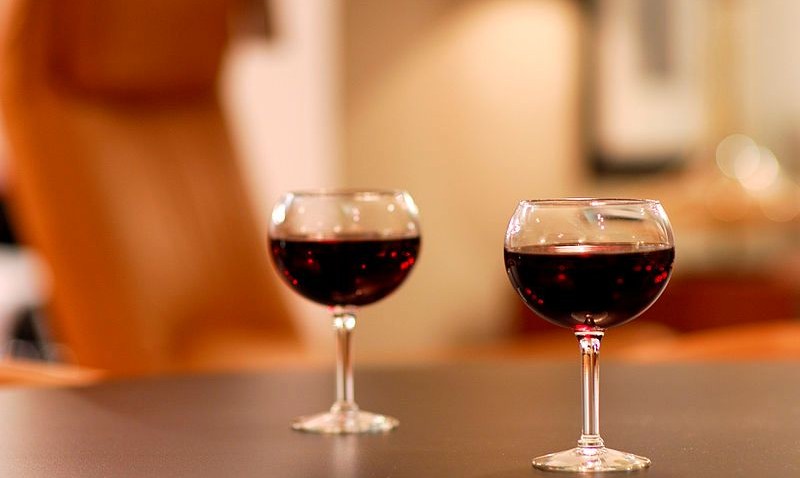Growing a grapevine on the allotment or in a conservatory is not that unusual. I even know of a fully functioning coffee tree growing inside a house (each year the kitchen-bound tree produces about half a pound of coffee beans), but I know of no-one else with tea bushes growing in pots on their bathroom windowsill. They’re still rather small but when they’re fully grown (reaching about three feet high in larger pots) the Camellia sinensis plants should provide me with enough tea leaves to make about 250 cups of tea.
I’ve always wanted my own tea plant. Being a complete teaophile I’ve tinkered with teabags and then discovered the delights of loose leaf tea, but this has never completely satisfied my urge to make my own cup of tea from scratch. Thank goodness for ebay. Late last year a ‘tea plant’ Alert led me to purchase two six-inch high tea plants at £7 each. Now I need to work out how to turn them into a cup of tea.
Robert Wilson (www.wilstea.com), ex-tea planter now importer of Ceylon teas, provided some sage (or rather tea leaf) advice – wait until next year when the plants will be a bit bigger before picking off the leaves (otherwise it could kill them) and then only remove the top two leaves and a bud from the end of each shoot. Twenty-five tea leaves are needed to make one cup of tea.
Making a brew with the freshly picked leaves would result in a feeble tasting beverage, the leaves need to be aired and cooked first to release tea-tasting chemicals.
Spreading the bright green leathery leaves on a cake rack overnight is the first part of the process. In the morning the now limp and darker coloured leaves are pliable enough to be rolled between the palms, mimicking the action of tea rolling machines used on commercial tea estates.
To finish the process the leaves now need a good roasting. A hot unoiled wok or large frying pan is best used for this. Swishing the leaves around will prevent them from burning and after a couple of minutes the leaves will be satisfactorily blackened. The finished leaves can be put straight into a waiting teapot. After soaking the leaves in freshly boiled water for five minutes you’ll be able to enjoy that first cup of home made tea. Just in time for the morning elevenses.
PG Wine Reviews
Just in case you fancy some wine as well, here are a few suggestions.
Les Jamelles French Viognier 2013
£5.99 Co-op (down from £6.99 until February 3)
It’s like drinking apple strudel. Good value, good plonk.
Les Jamelles French Syrah 2013
£5.99 Co-op (down from £6.99 until February 3)
There’s lots going on in this bargain red – flavours of blackberry, black pepper, violets and cherries – all with a spicy, sweet edge. Grand stuff.
Cono Sur Chilean Bicicleta Pinot Noir 2013
£5.99 Co-op (down from £6.99 until February 3)
More oomph than the standard French Pinot Noir offering, this Chilean offering stands out with its earthiness and fruity cherry flavours.
Montgras MG Reseva Chilean Carignan Syrah 2012
£7.79 Co-op (down from £9.79 until February 3)
Sophisticated cherry and fennel flavours.
Tweet me a wine question @huxelrebe
© Paula Goddard 2015 www.paulagoddard.com



